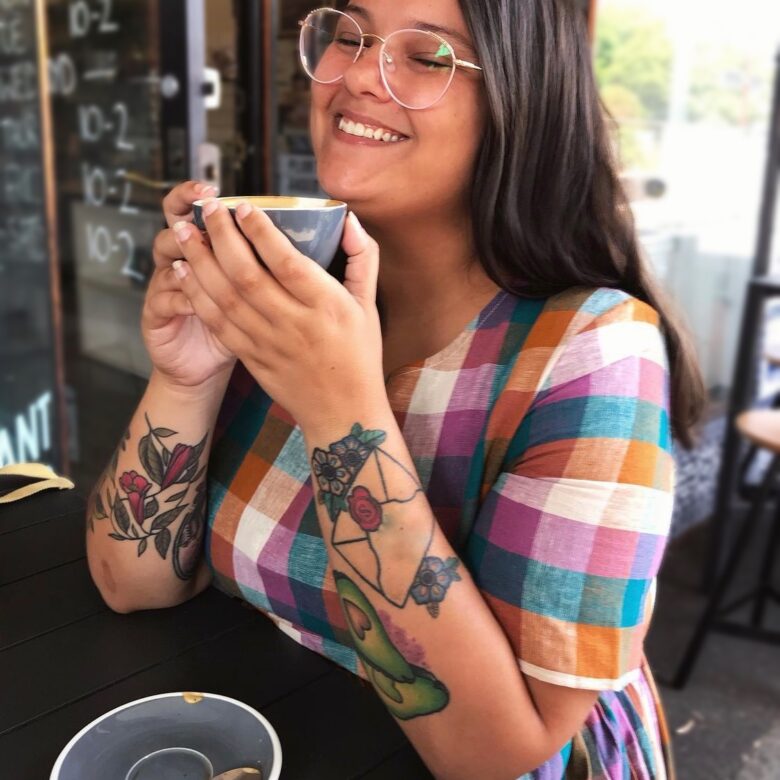Jase Cordova
Listen to the audio version of this piece
You can tell a lot about a person by what their bedside looks like. My bedside is a lot like me; messy and chaotic, with no real order to it. It’s littered with half-finished projects, books, and cups I haven’t had the energy to take to the kitchen yet. It’s a place where my phone lays to charge, and where things gather to be dealt with later (much, much later). My bed is my desk, and my bedside is my filing cabinet, dining table, rubbish bin, and medicine cabinet. It’s a mountain of both the necessary and the forgotten. Though I’ve grown to accept that this is how things are, I’m embarrassed by my bedside.
I feel similarly about myself.
I feel like humans shouldn’t need this much help to simply exist, and I slip into moments where I wonder if the effort is even worth it. I know life isn’t easy for most people, but I feel like I’m building on shaky foundations and whatever I construct could never withstand what others could.
My body is doing its best. Since childhood it’s tried to protect me, tensing itself at every movement. It wound itself up tight for so long that now everything hurts. I thank my body for trying, but sometimes I’m still angry. And I’m tired.
I’m tired of coffee with friends being cut short because I can’t sit longer than an hour without being in pain. I’m tired of crying out after simply attempting to roll over in bed. I’m tired of missing out on experiences, of being judged by strangers, of taking accidental naps for three hours a day. I long to be regular-person exhausted.
Every day I dutifully take my medication to give me the clear mind and tolerant body I need to get through the day, but sometimes I pause. I wonder if I even need them anymore, if all of this was temporary and while I was waiting, I got better.
Of course this is ridiculous. I find this out once the withdrawal symptoms have gone away and I’m back inside my body, living uncomfortably in this place my mind has created and having to again return to my doctor with my tail between my legs.
I dream of floating through my days undetected, a background character that you don’t even notice unless you’re talking to them, but using a mobility aid as a person under 60 is like carrying around a flashing neon sign that says “I’m different”. Sometimes I think the sign says something else when I’m not looking, like “I am using this stick to make fun of old people”, or “I just want attention”. So sometimes I stop using this too.
After years of my body being this way I am still learning. I am still convincing myself that having supports is not weakness, or showy, nor does it mean I’m any less of a human.
Most days I manage, but every day is a reminder that everything hurts.


